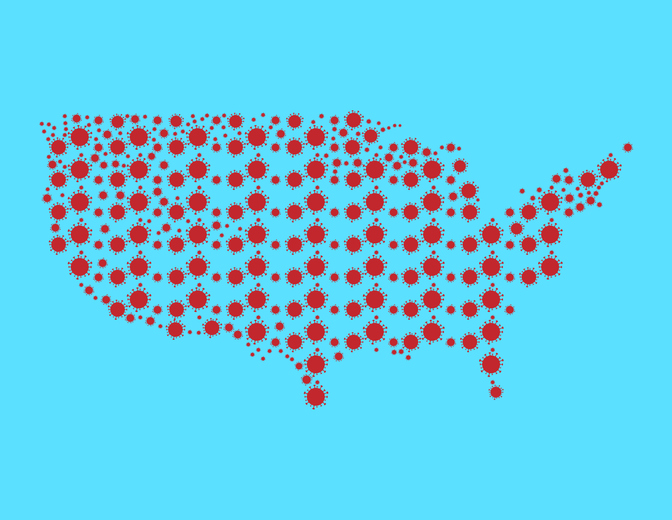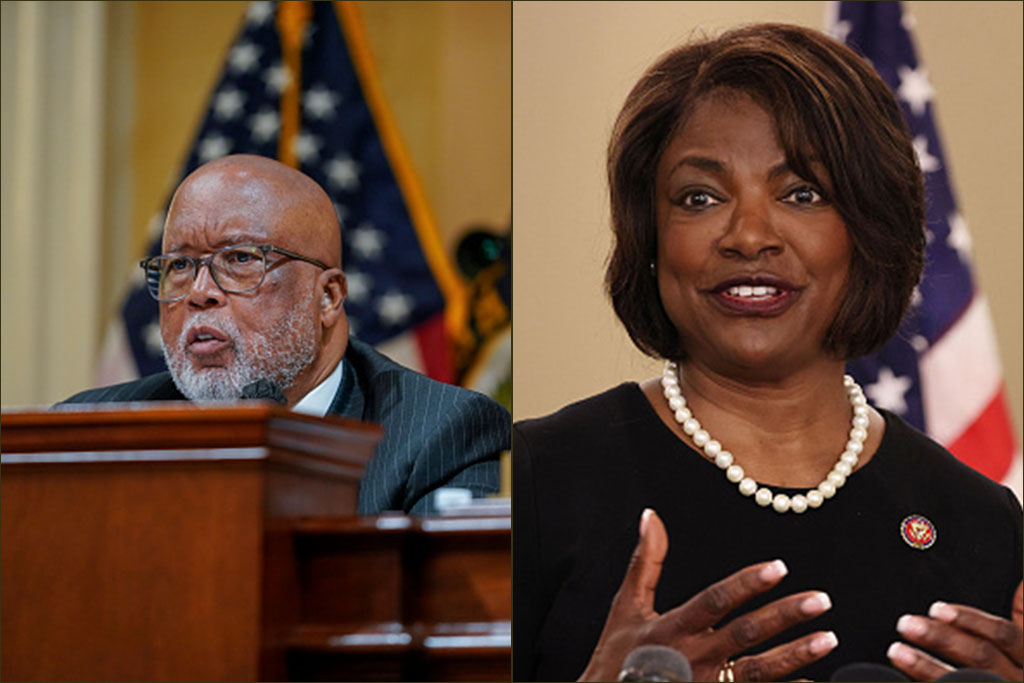Coronavirus Map By Race: Where Black People Are Getting COVID-19 More
Mapping Coronavirus: Places Where Black People Are Getting Hit Harder By COVID-19

Source: Vectorios2016 / Getty
It’s been firmly established that the coronavirus crisis has been disproportionately affecting Black people in the United States, whether it’s by the number of cases or deaths following complications of the COVID-19 pandemic. But for a number of reasons, we may never be able to accurately map out exactly where all of the cases are of Black people contracting the coronavirus.
With that said, while some states do not provide coronavirus statistics by race, a number of health departments from around the country have released some damning data that should have Black people in America raising their eyebrows as the death toll from the highly contagious respiratory illness steadily grows. Dr. Anthony S. Fauci, the director of the National Institute Of Allergy and Infectious Diseases who is the lead White House adviser on the coronavirus crisis, has acknowledged the racial disparity among coronavirus cases and deaths and said there was no immediate solution to address it beyond making a commitment to adhere to the same preventative guidelines for the rest of the world.
That grim prognosis didn’t mesh with the myriad reasons why Black folks are being disproportionately affected by COVID-19: an unfortunate combination of trust issues, pre-existing health conditions, the criminal justice system, not having the “privilege” of being able to practice social distancing and the prolific spread of misinformation, otherwise known as fake news.
Those factors have likely contributed to St. Louis becoming the latest place to report a lopsided number of Black people affected by the coronavirus. In fact, as of Wednesday night, every single last one of the 12 deaths from COVID-19 complications there have been of Black people. According to the St. Louis Post-Dispatch, the director of the Missouri city’s health department attributed those 12 deaths to similar causes that social justice groups and elected officials alike have been trying to raise awareness about.
“If you look at the health disparities in the city of St. Louis, they’re not unique,” Dr. Fredrick Echols said Wednesday. “Inequities exist across the U.S. and across the world, and it’s posed a challenge for public health agencies, (which) have to address those issues and ensure all individuals, regardless of race, socioeconomic status, income, or educational attainment have access to quality health-related resources.”
Aside from St. Louis, other so-called “hot spots” included but probably go well beyond Connecticut, Florida, Georgia, Illinois, Louisiana, Michigan, New Jersey, North Carolina and Washington, D.C. See the interactive map below.
In all of those instances, the percentage of Black people with the coronavirus exceeded the percentage of Black people living in the respective cities, counties and states. That was especially true in Milwaukee County, home to the eponymous city that has consistently been ranked as the most segregated in the country. As of Monday morning, 33 of the 45 coronavirus-related deaths in Milwaukee were of Black people, according to the Milwaukee Journal-Sentinel. That made Black Milwaukeeans more than 73 percent of the city’s COVID-19 mortality rate while they made up just 39 percent of the city’s population and 27 percent in the entire county.
There was a similar story in Los Angeles based on partial data released Tuesday. The Los Angeles Times reported that the findings “showed black residents were dying at a slightly higher rate than other races.” Black Los Angelenos made up 17 percent of the county’s coronavirus-related deaths but were only 8 percent of its population.
These cases aren’t only isolated to urban communities. In Albany, Georgia, a rural town about 45 miles south of Atlanta, the Washington Post reported that Black people “90 percent or better” of the coronavirus-related deaths in Dougherty County. The local coroner attributed that alarming rate to “underlying conditions — diabetes, COPD [a lung disease], cancer, AIDS — all of these underlying conditions compromised their immune systems.”
The coronavirus has also hit Mecklenburg County in North Carolina extra hard, including the city of Charlotte, where some leaders called it a “major problem.” The Charlotte Observer reported that data “showed black residents accounted for 43.9% of 303 confirmed COVID-19 cases locally” as of late last month. “By comparison, black residents make up only 32.9% of Mecklenburg County’s population.”
As alarming as these statistics are, chances are they don’t capture the true extent of the coronavirus’ effect on Black lives in America. That’ why the demand for more and accurate data has been growing in recent weeks. Massachusetts Rep. Ayanna Pressley was one of several elected officials who late last month sent a letter to Health and Human Services Secretary Alex Azar calling out the lack of racial data on who’s getting tested and treated for the coronavirus.
“Any attempt to contain COVID-19 in the United States will have to address its potential spread in low-income communities of color, first and foremost to protect the lives of people in those communities, but also to slow the spread of the virus in the country as a whole,” the letter said in part. “This lack of information will exacerbate existing health disparities and result in the loss of lives in vulnerable communities.”
SEE ALSO:
5 Reasons Why Black People Are Disproportionately Contracting The Coronavirus
Jamaican Coronavirus Survivor Used ‘Traditional Caribbean Home Remedies’ To Beat COVID-19


















